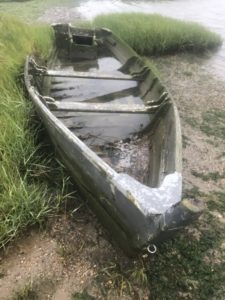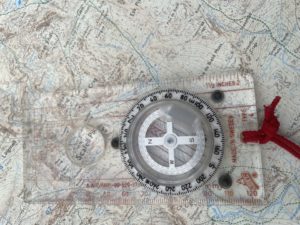Our Core Proposition.
It is possible to navigate successfully in these uncertain times… but it demands a high level of capability and a certain character profile.
Though the risks are much higher than in familiar waters, it can open up greater opportunities and more significant rewards.
So what is it that we need to focus on developing?
As a former Commercial Sea Captain and Corporate Leader, here are two areas that I have learnt are critical.
- You can only successfully navigate the ‘uncharted territory’ if first of all, you can navigate. When I was ‘learning the ropes’ at sea, every day was development and every day was assessment. Going through many intermediate examinations my ability as a potential captain was finally assessed and I was given a license. Every few years I was then reassessed to make sure I was up to date.
- These times require a depth of understanding and an ability to ‘continually see’ through many sets of eyes, in order to more fully understand.
This understanding literally requires us to ‘stand under’ other perspectives, views and ‘takes’ on reality. Humility is therefore critical. This understanding is then extrapolated across different and multiple timelines, of the near and mid term futures. This requires too, a shift in the quality of personal and organisational relationships. Any degree of dysfunction within the senior team of Leaders / Directors grappling with complexity, will create enormous drag and reduce the chances of a successful outcome.
Let me expand on this…
A New and Emerging Context.
The expression ‘navigating in uncharted waters’ has almost become a cliché over the past couple of years and certainly recent months… although the activity is as old as human history.
It does though describe the challenges all leaders are wrestling with as we figure out which way to go and what priorities to address and in what order. The impact of digitalization, robotics, cloud technology, climate changes and political / social turbulence, are all mixing things up, as old certainties fade and new realities emerge.
And of course COVID19 has just amplified everything.
The world is looking very different.
And along with the big issues… we are all faced with practical decisions that need to be made now or at least soon. These include;
- How and where to invest, if at all
- When to move to higher levels of automation
- When to shift everything to the cloud
- Whether to start bringing back employees into the office or just carry on with home working
- What to divest and what to retain
- When to fight and when to close
For the big corporations that have been operating on a ‘just in time’ basis and where low cost production has been based in an emerging but high risk part of the world… there are massive strategic and operational decisions that will have to be made over the next months and years. Ross Harling a Senior EU Evaluator boils it down to ‘cost versus resilience’.
And the point is that all of this is complex and uncharted, but will be the context we all have to do business in. In fact… just shifting to the cloud based technology, means that we are committing to ‘on going change’, rather than project to project based work, as technology becomes the driver and not just an enabler.
So how on earth does anyone prepare, plan and set a course in these circumstances?
The World Economic Forum is right. The challenge of this age is for leaders to be able to navigate in these poorly defined and uncharted conditions.
And as been said before, we in Teleios would add… ‘in order to find a good passage the leader must first of all, be able to navigate… with the advanced capability required of these momentous times’.
This seems a statement of the obvious. But what research there is, suggests that we aren’t so good at this as we need to be.
From credible studies (Atticus and IBM) the statistics suggest that only 20% are doing this well enough to deliver great outcomes. (Great outcomes here are described as at least 75% of all change projects coming in on time, in budget and delivering the intended outcomes) Already our SME sector has fallen way behind the worldwide competition in terms of Digital resilience, according to published figures.
A Big Ask and Need to Train with Width and Depth
But how many of our leaders have been trained in organisational navigation beyond the boundaries of change management? Sure… many of the words and phrases which I used as a commercial Ferry Captain are part of the lexicon of things to do with leadership and change… its just I don’t observe the understanding and the precision that the discipline demands, being embedded. This is not entirely the fault of leaders and we as trainers, educators and developers, need to own our part. Our association with Henley Business School and collaborations with Cognition24, DX and itelligent-i are trying to address this in part, as we invest in a new generation of leaders.
So From a Navigators Perspective…
Of course charts when they are available, do make things easier… in fact not only are they stuffed with information but they are almost works of art. But they exist, merely as representations, of the real world. Navigation has never been dependant on them.
It was only in the 13th century that charts as we would recognise them were first created. And yet peoples have been moving across our planet home for many thousands of years. I am sure they had their crude drawings and sketches in the sand. Such pioneering journeys are recorded in folklore. So some of the Norse journeys, record going past a land of fire and smoke, of seeing distant shores of green and being held in the clutches of all enveloping midst. And in these myths are detailed the pre history journeys of reaching Iceland, Greenland and being becalmed in the fog banks off Newfoundland.
The Ancients Relied on Technology Too
And these ancient mariners relied, like us, on technology. The Polynesians had coconut shells with holes in them that aligned to the stars and others had ways of measuring speed and distance. All could read the stars. In the Northern Hemisphere the North Star or Polaris, was the unchanging point of light that became the most important of the cardinal points. So when we talk of a person’s ‘personal compass’ we refer to the unchanging beliefs and values that remain constant in a time when all else is moving. In the Southern Hemisphere the navigators had the Southern Star. Ancient mariners could read the weather and wave patterns. We know that they were keen bird watchers too as they observed the bird species that landed on or were around the boat. This told them whether they were near land or not.
In other words they had learnt and been trained to ‘read’ the information all around them without the luxury of charts. And of course they got it wrong sometimes and ships were lost.
Seeing and Reading… Critical Navigational Skills
And now in these days we need to develop the equivalent skill set using Digital and Data Analysis, to help inform us of all that is going on. We also need our leaders who have access to all of the system information from across their organisations, to figure out the question, before racing to, often-incomplete answers.
We also need many trained eyes watching, noting and making sense of all that is happening around us. This requires strong and robust relationships as well as intelligent structures / forms… to allow a free flow of information. The context for us all is just too complex for a single leader or indeed a small group of leaders to cover all the territory. This shift has been called by Ross Harling ‘a new ecosystem of effort’ and by my colleague Richard Stone, as ‘the journey from cooperation through to collaboration through to concordance’. The latter requiring a joined up, systemic effort of one heart and mind. COVID has taught us that we can do this in a crisis and the question is…
‘… can we do this as part of the ‘normal way’ things get done around here?
This requires a rewiring of old habits and patterns.
The danger is of a widening gap… if technology continues to develop at pace but our human systems remain far behind. Practically this is what is being observed currently where ‘adoption rates’ of the new, remain low and the ROI remains therefore very thin.
These are significant and sophisticated skill sets, so we need coaches and mentors to help develop this capability and character in all ‘leaderships’. And this is all about the plurality of leadership not an investment in an elite few. If we fail to do so then the call of the WEF for leaders to be able to navigate in these uncharted times will remain just a voice on the wind.
What do you see?
On my first day at sea, as a novice deckhand, the captain found me and asked ‘what was
I was seeing’ as I looked out across a dynamic seascape. And on my first day, I didn’t see very much.
The same question was asked, every day for the next few years. And as I began to ‘see’, the question moved from being a test to an enquiry. When I got my ‘ticket’ the Captain and now friend, required me to do the same with my new crew. So we learnt to navigate by observing, making sense and extrapolating this information over different time lines. This told us what the options were and therefore defined what to do and in what sequence. And this mastery was passed from generation to generation of ‘yet to be’ Captains and Officers.
Todays Critical Need for Seeing and Fully Aware Leaders
So in todays ‘uncharted waters’ we need leaders of right character to be able to, ‘continually see’ from multiple and inclusive standpoints. From this, foresight is used, (or predictive analytics) extrapolating trend and patterns over multiple time lines. This is what any Master Mariner habitually does. We need leaders to be able to use and make sense of technology seeing it not just an enabler but as setting the direction of change itself.
Technology is Changing Change.
We need leaders / navigators to be able to understand complex and continually morphing systems. And we need them to be humble enough to learn, courageous enough for the adventure and wise enough to handle the multiple trade offs that they will continually face.
And like the ancient mariners and adventurers of old who weren’t held back by the lack of a chart, we need our leaders, skilled and simply brilliant at the science and art of navigation. Charts are very helpful… but when I am ‘off chart’ all of my other skills and knowledge kick in.
So two questions…
- As a leader how are you continually sharpening your ability to navigate?
- How are you passing on, this advanced skill set to other leaders?
If you are interested in finding out more on this subject, I published ‘Navigating Change. A Leaders Guide’ in 2019.



